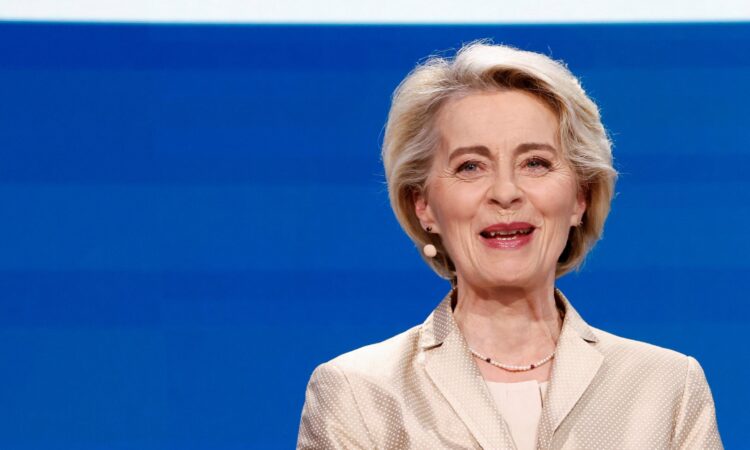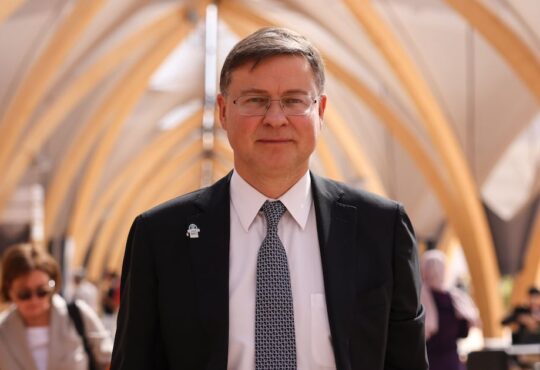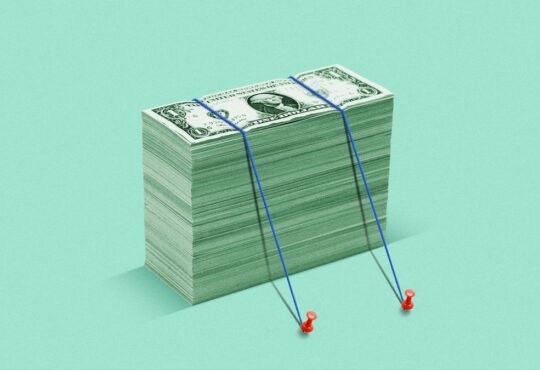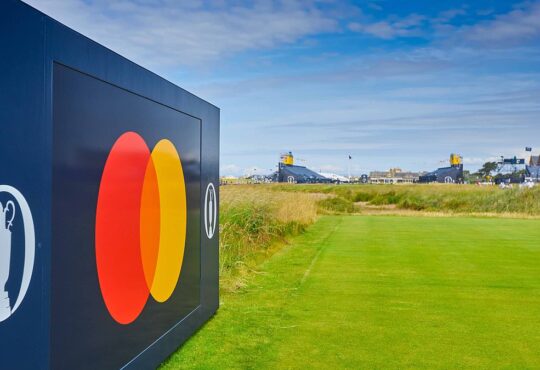
The German politician won a second term as Commission President despite opposition from the extremes. She promises a more secure EU.
Ursula von der Leyen has been sidelined on occasions, and she has made some mistakes, but there was never really a serious alternative to her as head of the European Union’s executive arm, the European Commission. That’s good news for Ukraine and for closer European defense cooperation.
Re-elected for a second five-year term on July 18, she actually increased her vote, winning the support of 401 members of the European Parliament from a total of 720. Last time, the former German Defense Minister took 383.
Among those celebrating, is the Ukrainian government. And among those unhappy, are the European populist parties who have little love for Kyiv and little enthusiasm for “more Europe.”
She has proven a serious operator in the often-complicated politics of the EU system. Her leadership was evident in the way the European Commission handled the toughest crises of this century so far — the Covid pandemic and Russia’s war in Ukraine.
She is supportive of a more concerted European effort on defense – although in a market-centric way, removing barriers to joint procurement and raising investment in military industries, rather than Orbán-proofing common security and defense initiatives by doing away with the unanimity requirement. She favors an EU-wide anti-air system and joint work on cyber warfare, and a new defense commissioner.
Many EU citizens will expect, as fears rise of a NATO-skeptical second Donald Trump presidency, that the Commission and the UK will take care of the continent’s security without US support. That is a very big ask for heavily indebted nations that have devoted very little consideration to security since the Cold War’s end.
Von der Leyen, 65, has also been moderately supportive of EU enlargement and reiterated her commitment in the reelection bid. Her ability to deliver, however, will be largely conditional on the appointments of other commissioners, and a vote for the Commission still lies ahead.
One thing is clear — her new foreign policy colleague, the incoming High Commissioner Kaja Kallas, will likely help her remain true to the promise to support Ukraine and to deliver on Commission support for strengthening European security — provided that the Council, where member states cast their votes — remains united on these issues.
Get the Latest
Sign up to receive regular emails and stay informed about CEPA’s work.
Her highlighted policies when pitching her candidacy speak a lot about her political acumen. She promised to make the EU economy more competitive and to tackle the housing crisis — an area of great concern for many EU citizens.
Von der Leyen came to office in 2019 as a result of compromise, rather than as an outcome of a leadership campaign (her colleague in the European People’s Party, Manfred Werner, was the Spitzenkandidat or contender for this role.
But she did well after a difficult start when COVID-19 vaccines were scarce, providing much-needed EU support to member states to overcome the pandemic. She successfully steered the Commission’s support for post-Covid economic recovery and was among the first European leaders to visit Kyiv in the spring of 2022, after Russia’s full-scale attack.
Naturally, setbacks happened, some of her own making – her personal calls and text message exchanges with the chief executive of Pfizer are still under investigation, and the Commission’s policy not to make vaccine procurement fully transparent has been overturned in the courts. Yet given the scale of the challenges faced by the European Commission since 2019, these were almost minor hiccups.
The German’s political approach is more opportunistic. She was happy to stand behind the Green Deal — Europe’s policy response to climate change — yet backed off a little when the farmers, allied with some populist parties, brought their protests to Brussels shortly before June’s European Parliament elections.
She also sometimes takes things personally. Multiple media reported on her supposed personal vendetta against a species — the Eurasian wolf — after a wolf killed her pony in Germany in autumn 2022.
Nevertheless, in her bid for re-election, Von der Leyen promised not to weaken green policies, not least because the Greens, although diminished as a group in the new European Parliament, are a crucial part of the informal coalition in her support.
Her other supporters include Europe’s centrists — her own center-right European People’s Party, the somewhat diminished Renew Europe, and the right-wing group of European Conservatives and Reformers. Other right-wing parties in the Parliament, including the new (and big) Patriots for Europe created by Hungary’s Victor Orbán promised to oppose her re-election. We will never know, however, the names of 401 MEPs who voted for Von der Leyen, as the ballot is secret.
Marija Golubeva is a Distinguished Fellow with the Democratic Resilience Program at the Center for European Policy Analysis (CEPA). She was a Member of the Latvian Parliament (2018-2022) and was Minister of the Interior from 2021-2022. A public policy expert, she has worked for ICF, a consultancy company in Brussels, and as an independent consultant for European institutions in the Western Balkans and Central Asia.
Europe’s Edge is CEPA’s online journal covering critical topics on the foreign policy docket across Europe and North America. All opinions are those of the author and do not necessarily represent the position or views of the institutions they represent or the Center for European Policy Analysis.
Europe’s Edge
CEPA’s online journal covering critical topics on the foreign policy docket across Europe and North America.







